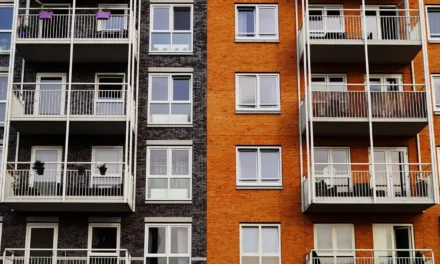The purchase of a house is an important step in the life of any individual. Understanding the motivations and expectations of today’s buyers has become essential for real estate professionals, facing a market in constant evolution. The modern buyer is no longer content to find a simple roof: he aspires to an environment that reflects his values, his lifestyle habits and that adapts to the new methods and work consumption.
Discover the current trends in the preferences of buyers, from the characteristics of the ideal house to decisive factors in your purchase process.
What are the characteristics sought in a house today?
A need for flexibility
One of the most striking trends in recent years is the growing need for flexibility in life spaces. Teleworking, which has been expanded during the COVVI-19 pandemic, has deeply changed the way people are considering their home. Now, the accommodation must be able to adapt to several functions: office, relaxation area, family life.
According to a survey conducted by the National Association of Agensifier Agents In 2023, 67 % of buyers consider the flexibility of spaces as a decisive criterion.
The multifunctional pieces, which allow it to move from one use to another depending on the needs, are particularly popular.
Energy efficiency and sustainability
The interest in energy efficiency continues to grow in buyers.
According to a statist study in 2023, almost half of European buyers (49 %) consider energy performance as an essential criterion in their purchase decision.
The accommodation that incorporates ecological equipment, such as solar panels, double glazing windows or even efficient energy heating and air conditioning systems, are increasingly sought. In France, the Agency for Ecological Transition (ADEME) estimates that Improving the energy efficiency of housing can allow saving of up to 30 % in energy invoices.
An environment conducive to well -being
Another criterion that is gaining importance is the ability of a house to promote the well -being of its occupants. Recent studies show that buyers attach increasing attention to elements such as interior air quality, natural light or even the presence of outdoor spaces such as gardens or terraces.
According to a Zillow study conducted in 2022, 38 % of American buyers cite light and natural air purification systems as important characteristics in their choice of the house.
The direct environment of housing, such as the proximity to nature or green spaces, has also become a key factor.
Proximity to comfort
Modern buyers, especially those of the generation and (millennials) and Z, increasingly favor the locations close to the comforts.
A 2023 Deloitte study reveals that 72 % of buyers under 40 estimate that the proximity of schools, supermarkets and public transport is an essential criterion in their choice of housing.
This preference is part of the desire to reduce travel times and live in “commercial” neighborhoods, where everyday services are accessible on foot.
Decisive factors in the purchase process
Price and financial accessibility
Although trends show a growing interest in specific characteristics, financial accessibility remains a central element in the purchase process.
According to Bankrate in 2022, 76 % of buyers consider the price as the main factor in their purchase decision.
Market fluctuations, including the increase in real estate prices in certain regions and the increase in interest rates, make the acquisition of a much more complex, pushing certain buyers to review their expectations or postpone their purchase. Interest rates, which increased significantly in certain regions in 2023, led to a reduction in the size of the requested goods by buyers.
The growing role of technology
Technological evolution has deeply transformed the real estate market. Buyers are now widely informed before going there to visit a property.
According to a survey conducted by Zillow in 2022, 97 % of buyers begin their online housing.
Virtual visits, high resolution photos and neighborhood evaluations have become key elements for buyers. More than 50 % of them say that digital tools, such as online visits, have a decisive influence on their final choice.
Digital platforms also offer the possibility of comparing prices, after market development and reading other buyers, which makes the process more transparent and accessible. These tools also allow better projecting, analyzing the potential of a district or the probable evolution of the value of a property.
The importance of emotions
The purchase of a house is not a purely rational decision. Emotions play a central role in this process. It is not uncommon for buyers to be ready to spend more than their initial budget for a good that adapts perfectly to the emotional level.
A survey conducted by Realtor In 2021 he revealed that 43 % of buyers were ready to increase their budget to acquire a house that causes a real crush.
Real estate marketing adapts to this reality by emphasizing the staging of houses, treating details such as light, decoration or odors, to arouse an emotional reaction of the buyer.
The influence of generations on buyers’ expectations
Buyers’ expectations also vary according to their generation. Baby-BoomersFor example, Often looking for accommodation adapted to retirementWith practical arrangements and located in quiet districts. Millennials, on the other hand, now represent most of the real estate buyers. The latter feel particularly attracted to intelligent technologies and connected houses, as well as accommodation close to green services and spaces.
Gene generationalthough she only enters the real estate market, already published marked preferences for ecological houses and communities that share their values in terms of sustainability and respect for the environment. These young buyers are also particularly sensitive to the accessibility of prices, in a context where the housing crisis makes the acquisition more complex.
The evolution of the expectations of today’s buyers is part of a context in which the psychological, emotional and environmental factors occupy an increasingly important place. If the price remains an essential criterion, the desired characteristics go far beyond simple financial aspect. Buyers aspire to accommodation that adapts to their lifestyle, which is flexible, environmental respectful and promotes their well -being.
For real estate professionals, it is essential to understand these new expectations to better meet the needs of modern buyers. The boom in technologies, combined with a greater awareness of matters of sustainability and well -being, shapes a completely changing real estate market, where purchase decisions are increasingly guided by a search for meaning and quality of life.





